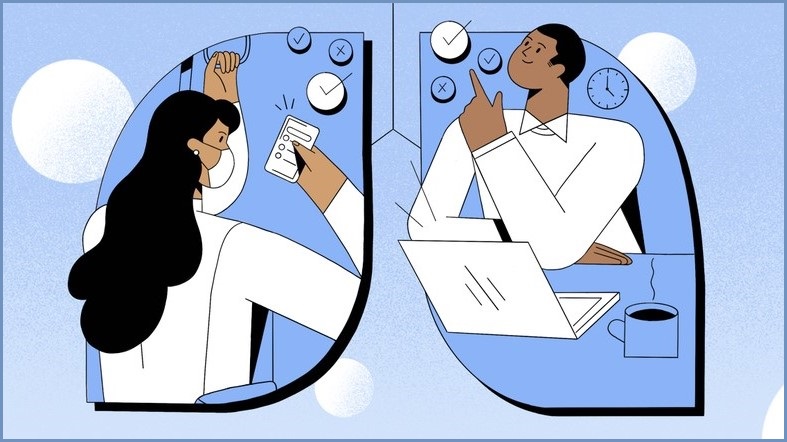Google is dismantling its health division, with a leaked memo revealing it will no longer operate as a standalone group, and that projects and teams are set to be absorbed into other parts of the company.
It comes a few days after losing Google Health VP Dr David Feinberg, who departed the company to take up the CEO role at health tech giant Cerner.
And it follows reports in June that more than 100 Google Health staff were moved into the Fitbit and Search divisions.
The Google Health name will remain and its health and wellness initiatives, including Fitbit, its AI health research and Google Cloud, will continue across the business.
Google said it remains committed to investing in health and will still develop its many programs.
“This includes developing projects within Google Health, launching and expanding health-related features on Search, Maps and YouTube that reach billions of people, expanding healthcare solutions in Cloud, and welcoming Fitbit,” Google said in a statement to Information Age.
Recent Google Health initiatives include expanding Care Pilot, its patient record software trial that is intended to help clinicians by organising patient medication information, test results and procedure orders.
It also recently launched an Android app, Google Health Studies, to make it easier for people to participate in medical research.
The grand plans for Google Health
In its most recent form, the Google Health group came together in 2018, bringing on board groups from across Google and Alphabet incorporating AI, product expertise and hardware with the goal of tackling healthcare challenges.
Feinberg joined the group in 2019 and pointed to the investment in AI and cloud as having the potential to make health data more useful and push the boundaries of what’s known about human health.
At the time of his appointment, Feinberg said the challenge of interoperability when migrating to electronic health records and bringing health data online was something the entire healthcare industry was facing.
This played a part in the failure of Google’s earlier efforts in health as the industry grappled with the shift to digitised healthcare systems.
Not the first health challenge for Google
Starting in 2008, the earlier incarnation of Google Health was to develop a repository of personal health records and data to connect pharmacies with hospitals and doctors with chief health strategist Dr Roni Zeiger at the helm.
Google had anticipated the program would help it make inroads into digital health, saying it wanted to translate the “successful consumer-centered approach from other domains to healthcare and have a real impact on the day-to-day health experiences of millions of our users”.
However, it was discontinued in 2012 with the company pointing to the lack of widespread adoption among the general public for retiring the initiative.
Google has also run into trouble at home and abroad in the way it has handled health data, with the Australian Competition and Consumer Commission (ACCC) expressing concerns around sharing health data to advertisers and even allow competing businesses to access health and fitness data after it acquired FitBit.
In the US, Google attracted criticism for its deal with Ascension to transfer the detailed medical records of up to 50 million Americans from the healthcare provider which would be accessible to staff as part of a secret deal. Google said it was standard practice to transfer medical data and that the deal adhered to all relevant data privacy laws and there would be “strict guidance” on privacy, security and usage.
It’s early days, so it’s unclear how this latest move might impact the ongoing competition between Google and Apple in the health and medical space.
The two rival tech giants have made plays to establish valuable health programs, looking to capture both consumers and healthcare institutions with their offerings.
Google collaborated with the World Health Organization (WHO) for its Google Fit app that works across iOS and Android.
For its part, Apple has been moving into medical research, with its Research app and partnering with organisations on heart research, women’s health, hearing and health and lifestyle studies and looking for ways to integrate with the Apple Watch and its iOS Health app.










